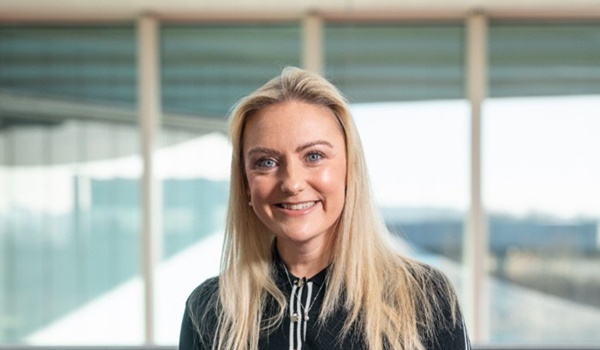All together now?
Charlotte Hails, Head of Public Sector Vertical Strategy at Virgin Media O2 Business, examines the need for a collaborative approach between policing and the private sector.
After almost two decades in policing, working across Safeguarding, Counter Terrorism, and Digital, Data & Technology (DDaT), I’ve seen just how much our ability to protect the public depends on the tools, systems, and partnerships at our disposal. I’ve also felt the frustration of being slowed down by outdated technology or fragmented data when every second counted.
Those experiences stay with you. They’re why, in my role today at Virgin Media O2 Business, my focus is crystal clear: to help forces overcome those barriers by bridging the gap between policing and the private sector. Because when we get the right people and technology working together, we can change not just how policing operates—but the outcomes it delivers for communities.
The challenges are well-known. Too often, our innovations sit in isolated pockets—brilliant but disconnected from other systems. The result? We lose opportunities for collaboration, and frontline officers don’t always get the benefit of the very best solutions available. That’s why I’ve long supported a national approach to digital transformation: one that prioritises interoperability, enables seamless data sharing, and invests in modern, cloud-based platforms that are secure, adaptable, and accessible across all forces.
The refreshed National Policing Digital Strategy gives us a clear framework for this change. It’s not just a technology roadmap—it’s a statement of intent, focusing on capabilities that are joined-up, data-driven, and designed to adapt to evolving threats and public needs. But strategies only succeed if they’re informed by lived experience, which is why the Police Digital Experience Survey is so important. It will tell us what’s really working, where the gaps are, and how officers and staff experience digital change.
And here’s the truth: technology alone isn’t enough. Culture and leadership play an equally vital role in embedding DDaT into policing’s strategic DNA. Leaders set the tone for innovation—whether it’s embraced or resisted, whether teams feel empowered or hesitant. Without that cultural readiness, even the most advanced systems risk being underused or misunderstood.
That’s where partnership matters. The private sector has a responsibility not just to deliver technology, but to act as a trusted strategic partner, co-designing solutions that address real operational needs and deliver measurable value. At Virgin Media O2 Business, we’re committed to listening first—understanding the pressures forces face, the priorities they hold, and the communities they serve.
We also recognise that transformation isn’t purely operational. It’s about people and communities. That’s why I’m passionate about digital inclusion—ensuring no one is left behind as services move online. It’s why we think about sustainability, so the solutions we deploy contribute to a greener future. And it’s why we embed diversity and inclusion into our approach, because technology should reflect and serve the diverse communities it protects.
Virgin Media O2 Business is the Principal Sponsor of the NPCC Innovation and Digital Summit 2025. Taking place from 20–22 October 2025 at ACC Liverpool, and hosted by the NPCC’s Digital, Data & Technology Coordination Committee and Science & Innovation Coordination Committee in partnership with the Police Digital Service, this is the first event of its kind.
The Summit will bring together policing leaders, technology innovators, and strategic partners to share ideas, explore solutions, and tackle shared challenges. It’s a unique space to turn strategy into action—linking the ambitions of the refreshed National Policing Digital Strategy with the operational realities of delivering modern policing.
Importantly, it’s also a chance to celebrate success. The NPCC Innovation and Digital Awards on 21 October will shine a spotlight on the people and projects already delivering real impact—proof that innovation is not only possible in policing but happening right now.
For me, this Summit is about creating momentum. It’s a chance to align national priorities, frontline needs, and technological capabilities in one place. It’s about listening as much as leading—understanding where challenges remain and collaborating to design solutions that work at scale. It’s also about showing what’s possible when we bridge the gap between policing and the private sector, creating partnerships that are built on trust, shared goals, and a commitment to the public good.
The policing landscape is evolving rapidly. New technologies, new threats, and new public expectations are reshaping how we think about safety, trust, and service. If we work together—forces, policymakers, innovators, and industry—we can ensure that change is not only inevitable, but positive. We can design systems that connect seamlessly, deliver insights in real time, and empower officers with the tools they need to protect the vulnerable, tackle crime faster, and serve communities with confidence.
That’s what the NPCC Innovation and Digital Summit 2025 is about. It’s not just another event on the calendar—it’s a platform for lasting change. And I’m looking forward to standing alongside policing colleagues, industry partners, and innovators in Liverpool this October, as we work together to make that vision a reality.




